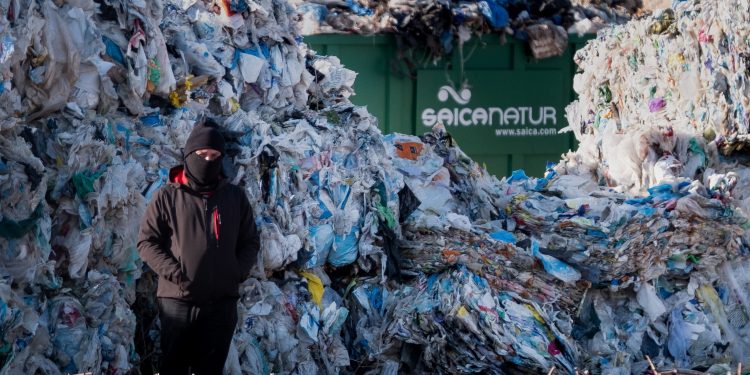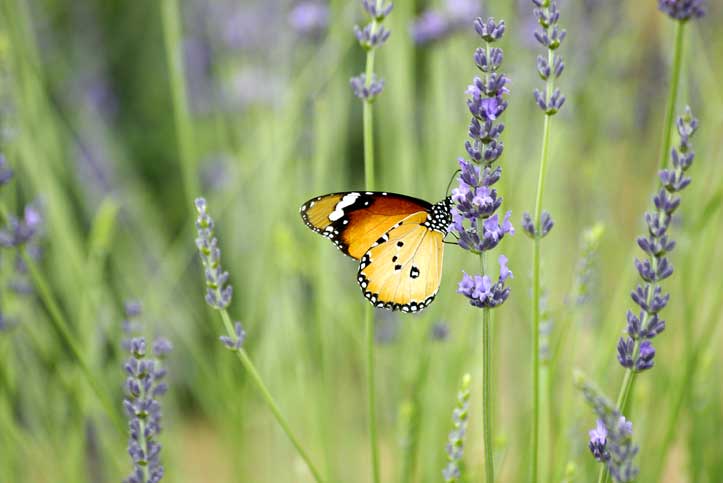
Greenpeace yesterday presented the report "Ecoembes lies: Dismantling the deceptions of the management of household packaging waste", in which it denounces the malfunction of a management system that fails to end the problem of plastic.
We explain the main situations that the organization reports. Before entering the subject, it is convenient to know a key concept. When a company markets a domestic container, whether it is plastic, aluminum, metal or paper-cardboard, it prints a green dot for it. This means that a percentage is paid for Ecoembes to recover that container and recycle it.
The problem that Greenpeace denounces is that only 25% of the plastic packaging that is consumed is recovered and recycled, while the rest ends up in the environment. Ecoembes As defined by Greenpeace, Ecoembes is a monopoly formed by the main plastic polluting brands (Coca-Cola, Nestlé, P & G ...) that, through this screen entity, “clean” their image but without cutting the pace of production, nor generate cleaner systems such as returnable and reusable packaging.
Greenpeace denounces, firstly, that Ecoembes is not an environmental organization and continues to show that it is not a non-profit organization, since in recent years its profits have increased fivefold. The organization points out that, in 2018 alone, these reached 578 million euros. Mario Rodríguez Vargas Executive Director of Greenpeace Spain, points out: “Ecoembes and its companies have long blocked alternatives to their inefficient packaging management, such as having a return and return system for packaging. We are talking about two decades lost in the fight against plastic pollution. For this reason, we ask the Vice President for the Ecological Transition and the Demographic Challenge, that, due to the imminent processing of the new Waste Law, promote real measures based on the circular economy, with the elimination of single-use containers and the commitment to the reuse and return of packaging ”.
What does Greenpeace denounce?
The organization first denounces the situation of landfills, where 44% of Spanish plastics end up, although most of them could be recycled. Greenpeace also mentions the fires. From 2012 to September 2020, 342 fires have been recorded in recycling plants and, at least, until 2019, 35 of them appear in the lists of recuperators and recyclers approved by Ecoembes.
Another situation that the organization puts on the table is the pollution of the oceans, in which up to 12 million tons of garbage are concentrated each year. Specifically, between 21% and 54% of the microplastic particles in the world are in the Mediterranean basin.
Finally, Greenpeace denounces the export of plastic waste to other countries with less management capacity and the fact that Ecoembes calls the process of burning plastics, in which large amounts of toxic substances are emitted, a circular economy. On the other hand, in economic terms, Greenpeace points out that the mismanagement of Ecoembes generates an economic extra cost both to the producing companies, because many of the containers for which they have paid the green dot are not recycled, as to the citizens, since Ecoembes frequently calculates down what the garbage collection will cost to municipalities.
For all these reasons, the organization demands from Ecoembes that the rate obtained by the green dot is aimed at fully covering management costs and ceasing to promote "false solutions". For the organization, the money collected by the green dot should not be managed by Ecoembes, but by the administrations. In the same way, they ask the Government to introduce legislation that encourages the reuse of a comprehensive waste management system and to promote initiatives to reduce single-use plastic. Source: Greenpeace.
This report was in addition to one that was issued last year which showed an illegal landfill on Mallorca.
Hundreds of plastic bottles, glass and containers have been piling up on a farm near the Can Alou quarry, in Felanitx for years, according to a Greenpeace report on the setback in the fight against single-use plastic.
In 'Ecoembes lies: Dismantling the deceptions of the management of household packaging waste' the environmental organisation denounces the illegal landfill on the property saying 40% of the packaging that's sent to the Son Reus selection plant is burned and the rest ends up getting dumped in places like Felanitx.
"We don’t know who started this illegal dumping but it is an aberration," blasts Julio Barea, Head of the Greenpeace Waste Campaign.
Greenpeace Volunteer, Javier Soto says it’s important to raise public awareness about the price of raw materials and stressed the urgent need for a comprehensive waste management system.
Felanitx Town Hall admitted that the landfill has been there for years and has promised to do something about it.
"We are aware of the Greenpeace complaint and the police have made a report,” said Felanitx Mayor Jaume Monserrat. “It is a large area and we plan to study the situation to find a way to reverse this disaster.”
Medi Ambient launched an immediate investigation after it received the Greenpeace complaint.
As a keen recycler for many years these types of reports are very disappointing and disheartening, making me question why the heck have I and others been bothering for all these years? This is why I keep on encouraging my family and all my friends to buy less plastic, maybe using the shops that refill your containers for you,such as the three I have mentioned before in my previous blogs.
As you know I am also in the process of making my own cleaning products, some are working better than others but it is all trial and error and fun too. The latest one being soapnuts! The way I see it is that the base product is packed in plastic, but weighs 1 Kilo, this can be made into many litres of the cleaning liquid or you can use the nuts as they are! They come with a special cotton bag to put the nuts in for use in the washing machine, you only need 5 and they can be reused up to five times before throwing them away.
Please if you can, buy less plastic because as it is becoming painfully clear, we are being misled and lied to! Once again it all comes down to money.
The blog song for today is : "Watching the detectives" by Elvis Costello
TTFN





